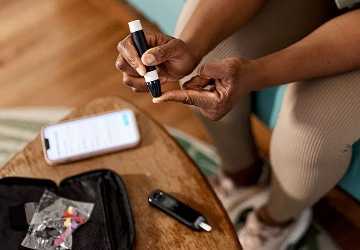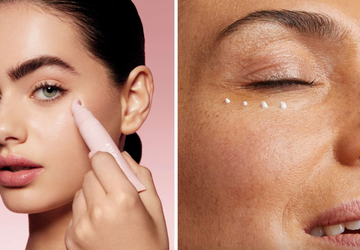Understanding the Difference Between Type 1 and Type 2 Diabetes
Can you tell the distinction between type 1 and type 2 Diabetes? Diabetes is a chronic disease of global proportions that has an impact on millions of people, but it is not a monolithic condition.
Many people need to realize there are two main types: The two broad categories are Type 1 and Type 2. This ignorance can result in various issues.
Knowing the differences makes making the proper treatment and care decisions more accessible. You may need to notice some signs or even apply the wrong treatment measures, which can damage an individual's health in the long run.
So, don't fret. This article will explain the significant distinctions between type 1 and type 2 diabetes. You will learn how the different types impact your body, the signs to watch out for, and how to deal with them.
Let's get started!
But Why Does Knowing the Difference Matter?
It is not just a trivia question whether one has Type 1 or Type 2 diabetes. This critical piece of knowledge can turn people's lives around. Here's why it became necessary to do that:
First of all, accurate diagnosis is half the battle. If a person or a loved one experiences diabetes symptoms, it is crucial to determine the type so that doctors can make the right decision.
Treatment, for instance, is not generalized. Specifically, measures for Type 1 and Type 2 diabetes are distinct. This implies that what works for one might not work for the other. Well, knowledge is power when it comes to managing diabetes.

Essential Differences Between Type 1 and Type 2 Diabetes
Now, read about these two types, how they begin, what causes them, their signs/symptoms, and how they are managed/treated. We will also discuss the risks and whether they are avoidable.
1. Onset and Causes
Type 1 diabetes is known to develop at a young age and most often affects children and young adults. It is like the body rebelling against itself and beginning to fight some of the cells in the pancreas that produce insulin. This occurs suddenly, and doctors have not been able to determine why.
Type 2 diabetes is different in that its cause is rooted in the body's inability to use insulin or produce enough of it properly. It is more common in the later years of life; it strikes after 45.
But here's the thing: young people are contracting it increasingly today. Your lifestyle contributes a lot to this. If you are overweight, passive, or a junk food kind of person, then you are likely to develop it.
2. Symptoms
In Type 1 diabetes, You might feel you are always so thirsty that you need water and keep running to the bathroom, and you lose weight even though you are not dieting. The signal screams loud enough that something is wrong with your body.
Type 2 diabetes is more deceptive. The symptoms do not take their sweet time to appear and make themselves known. Sometimes, you may be always exhausted, seen through a veil, or cuts may take ages to heal. It is less like the body is screaming but more like the body is just murmuring.
3. Treatment
If you are diagnosed with Type 1 diabetes, insulin is your solution with which you will have to become familiar. It will be required for life, along with monitoring the blood sugar level and proper nutrition. It's a full-time occupation, but it is health-promoting.
Type 2 diabetes allows you to make choices. It may begin with eating right, exercising more, or even dropping a few pounds. Sometimes, that is sufficient, but at other times, you may have to take pills or even insulin. All in all, it is about discovering your unique winning strategy.
4. Risk Factors
The nature of Type 1 diabetes is a bit cloudy. Perhaps you got it because it seems to be hereditary. Furthermore, it is higher if you have other autoimmune diseases, too. However, there is no absolute certainty, even in that case.
The risk factors are more evident in the case of Type 2 diabetes. Obesity, especially being overweight and having belly fat, is one of them. So you increase those odds if you sit at a desk for hours, and your eating habits are more like McDonald's than carrot sticks.
5. Prevention
At present, we do not know how to avoid the development of Type 1 diabetes. Once you contract this disease, it is all about living a healthy life with the disease.
But Type 2 diabetes—that is where you have some measure of choice in the matter. Finding ways to avoid the factors leading to these diseases, i.e., getting enough exercise, eating correctly, and maintaining a healthy weight, are some ways to prevent them.
It is a cumulative process of developing a shield against diabetes by gradually changing your lifestyle.
Take Control of Your Health
Having learned about Type 1 and Type 2 diabetes, it is time to apply your knowledge.
For those who are touched personally by diabetes or know someone who is, don't sit on this information. Take action!
Talk to your doctor. They can help you determine the most suitable plan for the individual in question.
It would help to remember that knowledge is power half the time. The actual value of knowledge is the result of its application.
Remain as interested in diabetes as you were initially, and continue to learn about it.
The more you know, the better prepared you will be if and when it happens. Your health is thus your responsibility, and it is time for you to take charge of it. Say it now—tomorrow will be too late.

Frequently Asked Questions
Q. Can type 2 diabetes develop into type 1 diabetes?
Ans: That's different from how it goes. These two are two completely different things. They begin differently and require different management strategies. You will not suddenly, one day, look up and see that your Type 2 has changed to Type 1.
Q. Is insulin only for Type 1 diabetes?
Ans: Actually, that's a myth. All Type 1 people require insulin, but some people with Type 2 might also require insulin. It depends on how their body is coping with things.
Q. Are Type 1 and Type 2 diabetes hereditary?
Ans: It is not a clear-cut yes or no. Both can be hereditary, but that does not mean one will get the disease. In type 2, your lifestyle also has much to do with it. You are not condemned just because it runs in your family.
Q. Can diet alone manage Type 2 diabetes?
Ans: Occasionally, but do not count on it. Eating right can do much, but many still require meds or insulin. It is all about the balance that you should achieve in your life.





